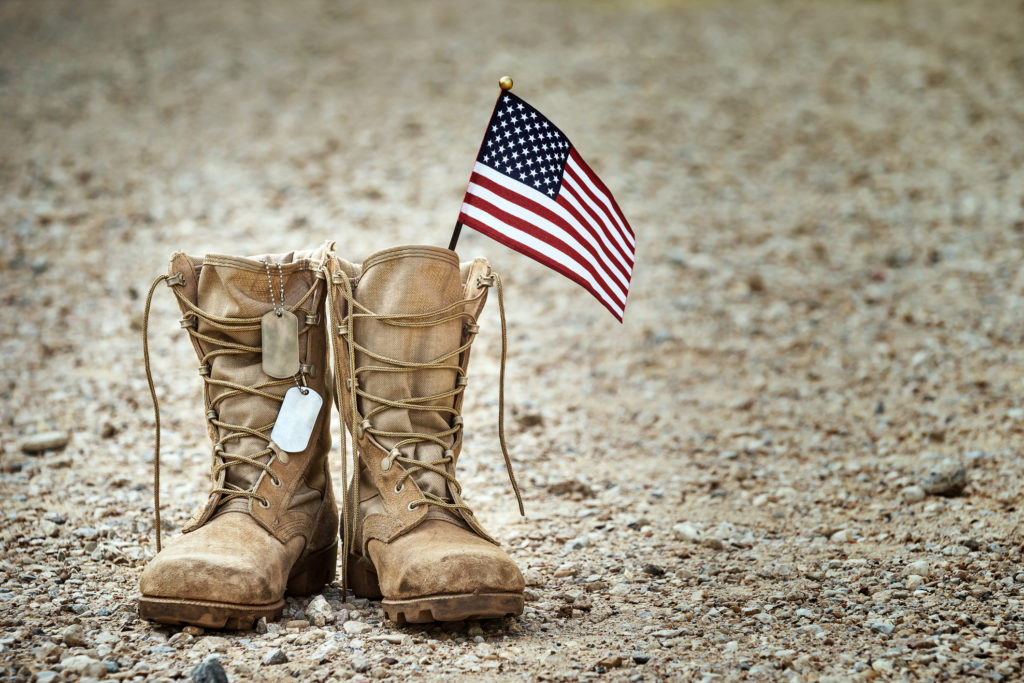It was a simple motion, practiced until it felt like bone and habit. For years he had saluted at funerals, at the flag, at the photos of men he had known and lost. He had stood at casket sides and swallowed the salt of other men’s tears. He had balanced on his prosthetic leg and told the younger caregivers he would be fine; he was fine. But there were things the body doesn’t admit with words. Today, he would stand for those who could not.
A parade rolled down Main—a small one, local high school marching band at the front, a handful of veterans in jackets that tried to hold their medals in place. People clapped politely. Henry did not move his hand. Rain ran in rivers down the edge of his sleeve. A woman with a stroller covered the baby with a blanket and craned her neck to see. A man with a camera phone kept filming the band, searching for the right angle. A group of teenagers, more interested in the bands’ choreography than what had come before, snickered and elbowed one another.
“Look at him,” one of them said. “Dude, why does that old guy even stand out there? He’s soaked. He’s ridiculous.”
“They make a big deal out of everything,” another answered, laughing. “It’s like he wants applause for getting wet.”
Henry heard the laughter as if it were under water. He kept his hand raised. The rain felt like small pins against the back of his neck. He thought of the ship—of diesel and alarms, the way the night had gone black and hot, the way he’d smelled metal and smoke and the blood of men he’d never forget. He thought of Tommie Reyes leaning against the rail, smiling at something stupid on the radio, and then silence. He thought of shells of men who never came home. He thought of promises he had made, one to the flag and one to himself: to remember, to stand, to honor.
Across from him, the schoolgirls forced their laughter into streams of words and looked the other way. A few people glanced, some with pity, some with annoyance, and a black dog on a leash sat and watched as if it understood the ceremony better than the humans. The band played “America the Beautiful,” and it rolled down the wet street like a warm memory. Henry’s hand was tired. His fingers cramped. The prosthetic pinched at his socket; his stump ached and throbbed, the phantom pains that no one asked about. He would stand until his legs failed him or until the band passed. That would be enough, he told himself. That would be his witnessing for the day.
Then a small movement in the crowd: a boy, maybe ten, with an oversized coat and sneakers that went squish when they hit the puddles. He was holding his mother’s hand tightly, and when the marchers came by, his gaze kept drifting to the man at the post office corner. He didn’t laugh. He didn’t look away.
“Sam, stay with Mom,” the woman whispered, but the boy—Sam—was already pulling free.
He ran.
Puddles exploded around his ankles. Rain peppered his cheeks and the brim of his hood, but Sam ran as if the storm were applause, not weather. He stopped two steps from Henry, sobered instantly by the man’s posture, the set of his jaw, the flag beating above them. He looked up. For a fleeting second Henry thought the boy might be lost, a child who had wandered from the crowd. Instead, Sam straightened his shoulders and—without a word—lifted his hand in salute.
A hush slid through Main Street like fog. The band faltered on a note. A dozen conversations evaporated mid-sentence. The teenagers who had been snickering looked as if someone had lowered a curtain on their amusement. The woman with the stroller stopped rocking and stared. Phones were still; someone gripped the camera tighter. The rain kept falling, but the noise of the town had learned to be quiet.
Sam’s small fingers trembled. Henry watched the boy, and something in him unclenched. There was no show of bravado in Sam’s stance, no performance. There was an honest, raw echo of Henry’s own youth—someone else’s first understanding of what it means to honor something larger than yourself. For a moment the veteran saw himself reflected in the child: raw, stubborn, unwilling to let the moment pass without recognition.
The teenager who had joked stepped forward, shame making his face pale, and the group dispersed like a flock disturbed. “I—I’m sorry,” he mumbled, not sure who he apologized to. The band’s drumline picked up again, but their rhythm was different now—slower, like walking across a field. The people clapped when the veterans went by, but it was softer than before, like the town was trying to do the right thing after being shown what the right thing could look like.
Henry shifted his weight. The prosthetic leg clicked subtly against the pavement. He felt something in his chest loosen, the pressure of remembered things easing into the shape of present gratitude. He lowered his hand for the first time to meet Sam’s, as if greeting a comrade. The boy’s eyes were bright with something that was neither joy nor sorrow but a fierce and tidy kind of respect.
“Thank you,” Henry said, his voice a gravel-rough rasp that had known ship engines and wind and the hush of morgues.
Sam looked at him like he’d offered a secret, and then his gaze slid to the flag. He straightened and for a breath, the town held its collective breath with him. The air was wet with expectation, the kind that existed before any choice is made—before a word, an action, a life is nudged a little to the left.
Henry’s legs gave a small protest. It was not enough to topple him, but enough to make him wince. He wrapped his free hand around the top of his cane, just to ease the strain. Sam, seeing the falter, stepped closer on his own accord and stood by him. Not touching, not intrusive—just there. Two figures beneath a damp flag: a man who had carried decades of nights and a boy who had just learned that some things are worth standing for.
The town watched. Cameras tilted. Someone started to weep in the crowd, and another to whisper a prayer they hadn’t meant to say aloud. The band’s trumpets played on. The veterans, from their row of jackets, tipped their heads and returned the salute. Men and women watched in the small businesses, hands clasped; church bells, which rarely rang in Cedar Falls, began to chime—two slow, measured tones that carried over the rain.
When Henry’s knees finally buckled, it was not dramatic. It was a tired giving-in, like the last page of a long book. He folded toward the wet curb and the world leaned in to catch him. Sam didn’t run. He didn’t scream. He knelt and put an arm around the old man’s shoulders, awkward and sincere. People crossed the street to help. The teenagers took off their coats and laid them over Henry’s shoulders, as if the fabric itself could offer absolution.

An ambulance arrived. Someone fetched Henry’s wife, who had been standing across the street with a thermos and a look of worry carved into her face. As they helped him into the vehicle, Sam stood and performed one more salute—fingers straight, palm flat—and then, as if an invisible conductor had given him permission, he lowered his hand and walked back into the crowd with his mother.
Days later a photo of that moment ran in the local paper: two silhouettes beneath the bowed flag, the small boy’s hand raised in an unadorned, perfect salute. The caption read, simply: “Respect.” The image traveled further than Cedar Falls. The photograph found its way onto social media feeds and across breakfast tables in towns with no idea where Cedar Falls was. Letters arrived at Henry’s mailbox—handwritten notes from strangers, a fruit basket from a neighbor he scarcely knew—but the one that mattered came small and earnest from Sam himself.
The boy’s letter was written in thick marker on lined paper. It read: “Dear Mr. Cole, My dad’s name is James. He was in the Army and he didn’t come home. My mom says sometimes people forget. I don’t want to forget. Thank you for standing. —Sam”
Henry kept that note in his shirt pocket for weeks. He read it when the nights brought dreams of diesel and heat and the sound of a radio before the dark. He read it when the phantom pain gnawed. He read it when Sam and his mother came to the hospital the next week, bearing a thermos of coffee and two paper crowns made from newspaper to keep Henry’s head warm and to make him laugh.
At the next year’s Veterans Day, Sam walked at the front of the parade. Not as an honored guest nor as a spectacle, but as a young man who had learned the meaning of a small, sacrificial gesture. He carried the flag for a block, palms gripping the pole, his forehead furrowed with concentration. Henry watched from a folding chair at the curb, prosthetic leg propped, a blanket across his knees. He clapped as the parade passed and felt for the first time in many years the sensation of being seen without the sting of pity.
Cedar Falls remembered, and then it moved on—that’s what towns do. The rain eventually stopped. Leaves turned and fled from branches. The veterans aged in their jackets. But the photograph remained. It became a way the town explained itself: not as a place of gentle forgetfulness, but as a place with enough room for guilt, for correction, and for a boy to teach a town how to be still.

Henry’s hand no longer rose as easily as it had that first year. When it did, Sam would catch his eye and nod like an old comrade. Sometimes they would stand together in the drizzle, two figures under a flag that had seen war and weathered both. People would pass and sometimes cough an apology, sometimes a thank-you, and once in a while, a child would stop and raise a hand of their own.
Henry kept the note in his pocket until the day he could not remember why he had it there. He could not name the year he lost the ability to tie his own shoes or when the cold began to go straight to his bones instead of to his joints. But he could remember, clearly and without strain, the rain, the boy, the salute. He could remember standing and choosing to keep his hand up even when the town laughed, because somewhere between thunder and the hush that follows, someone needed to know they had not been forgotten.
That is all any of them had asked of him. And for those hours beneath the rain and the flag, he had kept his promise.
![]()
